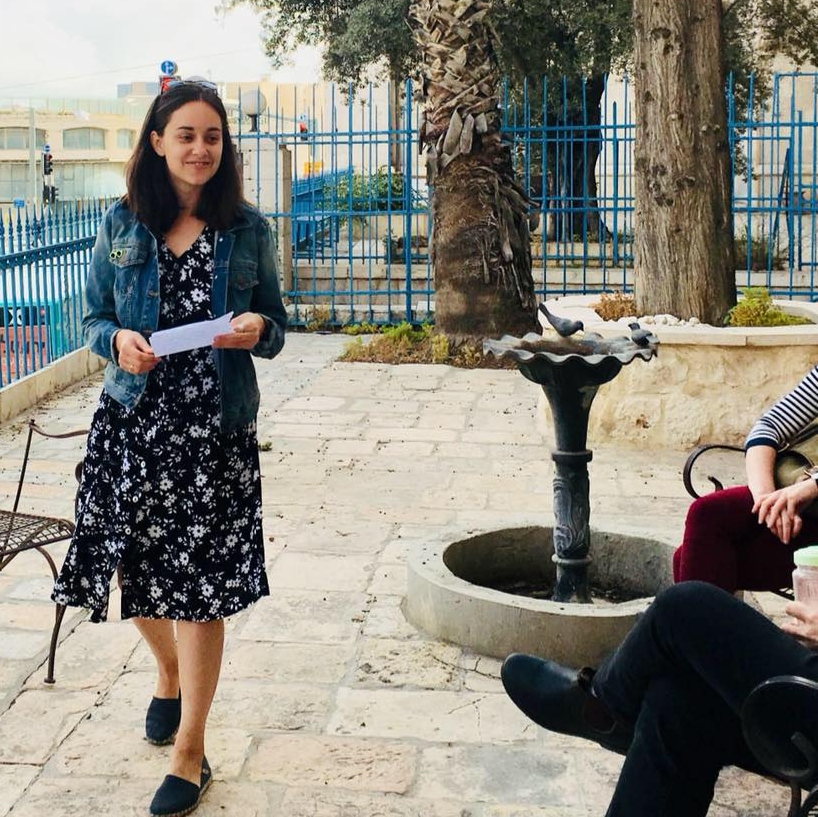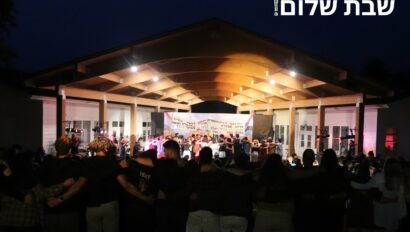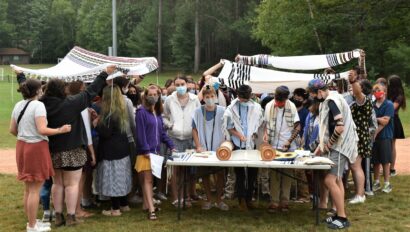Please enjoy a d’var Torah this week by Shani Abramowitz. Shani spent this past summer working as the Rosh Yahadut at Camp Ramah in Wisconsin. Shani is a fourth year rabbinical student at the Jewish Theological Seminary in New York City, where she is also pursuing a Master’s degree in Bible. Originally from the Chicago suburbs, Shani attended Brandeis University, where she studied English Literature and Psychology. After college, Shani spent a year studying at Yeshivat Hadar, an egalitarian yeshiva on the Upper West Side of New York, where she encountered Talmud study for the first time. Shani loves all things reading and knitting, and is currently working on an original collection of poetry inspired by the Mishnah. This year, Shani will serve as the Rabbinic Intern at the Glen Rock Jewish Center.
The Gift of Return: Reflections on Parashat Bereishit
by Shani Abramowitz
This Shabbat, we will finally and fully transition out of the holiday season. We will celebrate Shabbat as we normally do, with no additions, changes, or abbreviations to our tefillot. Shabbat will pick up, continue as planned, and we will fall back into our busy schedules and lives. Perhaps many of us are finally taking a breath after the Holidays, and are looking forward to routine. The promise of regularity certainly offers comfort, but we must be careful not to fall too deeply into that contentment.
This Shabbat, we will begin reading the Torah from the very beginning. We will read Parashat Bereishit, and recount, with awe, the very origins of the universe. We will recount the Seven Days of Creation, and we will read the story of the very first Shabbat – God’s Shabbat. Every year, when we read Parashat Bereishit again in Shul, I find that I have a somewhat surprising reaction. During the reading of Parashat Bereishit, and particularly of the Seven Days of Creation, I often find myself feeling so overwhelmed with a sense of gratitude, familiarity, and wonder. And, even though we read this parashah every year, my fascination and wonderment with our universe, and our place in it, never seems to diminish.
I have recently started to think more about this feeling, and have been trying to cultivate a sort of spiritual practice around it. I’ve been wondering: what might it look like or feel like to approach some of the things that feel most familiar in my life, not only with an open heart, but with a wonderment and curiosity, much like I do the text of the Seven Days of Creation? How might I transform my experience of being a student, my relationships, or the usual goings on of my day-to-day life, if I just paid closer attention, asked more questions?
For the vast majority of the year, we anticipate yet another summer spent at camp. Every year, as we grow and change, we look forward to all of the things that are familiar to us about camp– our friends, the tzevet (staff members) that we’ve grown close to, the agam (lake), and other beloved spaces in camp. Our comfort and familiarity with the people, activities, and spaces at camp keeps us grounded, and is a big part of why we return year after year. But, it is also those things that we are not yet familiar with, or the things we don’t quite know yet, that keep our interest and curiosity about camp alive.
Camp, much like the practice of reading the Torah from the very beginning, gives us an incredible opportunity to arrive with open eyes, and a brand new set of questions and ideas. In my own experience, camp has been an amazing place to put this new-found spiritual practice to work. In all of the ways that I feel safe and comfortable at camp, I also know that camp is a place to push ourselves, to learn more, to question more, to become the very best versions of ourselves we can imagine.
Parashat Bereishit reminds us that there is infinite wonder in this world, and that our job is to pay attention. The charge of Parashat Bereishit is one that is so critical, but often overlooked –that radical openness and curiosity, especially in moments of comfort, familiarity, and contentment can transform our entire experience of this world. Parashat Bereishit begs us to imagine a world in which we are asking those big profound questions, the kinds out of which universes are made.






